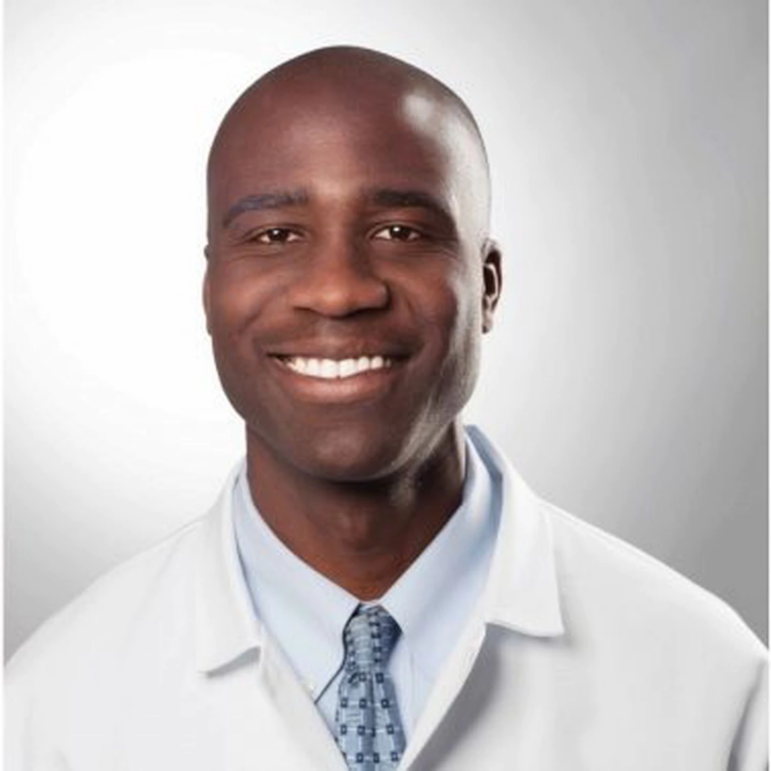MIAMI – Earlier this year, a measles outbreak swept through Manatee Bay Elementary prompting distance learning by another county, and the state Surgeon General Joseph Ladapo disavowed responsibility. In a letter on Feb 20, 2924, Ladapo covered the symptoms of measles and even wrote “Individuals with a history of prior infection or vaccination who have received the full series of the Measles, Mumps, Rubella (MMR) immunization are 98% protected and are unlikely to contract measles. Up to 90% of individuals without immunity will contract measles if exposed.” Ladapo never urged parents to vaccinate their children, however.

Joseph A. Ladapo, MD, PhD via Florida Department of Health
“I’m flummoxed about this,” says Dr. Ali Khan, dean of public health at the University of Nebraska told NPR. “I’ve never heard of a surgeon general who didn’t at least advocate for best public health practice.”
Ladapo first gained attention in 2020 when he wrote opinion pieces for the Wall Street Journal, condemning public health measures such as masking and lockdowns despite lacking a background in infectious diseases. In a high-profile event that same year, he stood with the controversial group America’s Frontline Doctors at a press conference outside the Supreme Court. The group promoted hydroxychloroquine as a COVID cure, a claim quickly debunked by scientists. Ladapo later claimed he was there to support “individual autonomy,” a defense that resonated with a conservative audience. But as the COVID-19 vaccine rolled out, he pivoted to casting doubts on its safety, positioning himself as a contrarian in the medical community.
Critics argue his position represents a dangerous politicization of public health in the U.S. and his views, while not aligned with scientific consensus, found a sympathetic ear in Florida Governor Ron DeSantis who appointed Ladapo as Florida’s surgeon general in 2021.
Governor DeSantis framed Ladapo’s views as a voice of reason amid the pandemic, touting him as the only doctor willing to say, “I [DeSantis] was right,” which drew considerable criticism. Ladapo quickly set about implementing a policy agenda that critics claim disregards established public health practices, including eliminating quarantine requirements for children exposed to COVID.
Ladapo has defied the guidance of both the American Academy of Pediatrics and the Centers for Disease Control and Prevention. He has cited unreviewed, unpublished documents to argue that men aged 18-35 should avoid the COVID vaccine, a claim widely criticized as an attempt to “weaponize bad science” to spread vaccine misinformation, as one physician described it. An investigation by the University of Florida, where Ladapo has an academic affiliation, found that his recommendations stemmed from “careless research practices” that potentially violated research integrity.
In the lead-up to the 2024 elections, Ladapo has broadened his public health commentary to oppose Amendment Three, a Florida ballot initiative to legalize recreational marijuana for those over 21. If passed, it would permit adults to possess up to three ounces of cannabis or five grams of concentrates, decriminalizing small amounts that currently result in serious penalties. This would align Florida with 24 other states that already allow recreational cannabis use, shifting the state’s policy from medical-only to a broader recreational model.
Various cities in Florida have cannabis decriminalization ordinances already. At the county level, Miami-Dade State Attorney’s Office policy does not prosecute cannabis possession charges when the amount is small.
Although Ladapo refrained from directly urging voters to reject the amendment, he emphasized numerous health risks associated with cannabis use, citing reports from the National Institutes of Health (NIH) linking heavy usage to addiction, increased cancer risk, and mental health concerns.
“It increases the risk of schizophrenia in young people,” Ladapo stated in a recent interview. “I mean stone cold, stone cold—solid evidence for this.”
But Ladapo’s comments didn’t stop at health concerns; he ventured into what he termed the “spiritual” implications of drug use. “Drugs diminish our ability to be all that we can be, to be representations of God’s love, God’s light, God’s wisdom, God’s care,” he said, adding, “I wouldn’t even call it moral, because moral implies judgment.” His remarks have sparked backlash from advocates of religious freedom, who argue that his stance is rooted in Christian perspectives that fail to respect diverse spiritual traditions.
Within hours of Ladapo’s statements, the Everglades Moon Local Council (EMLC) issued a strong rebuke. Everglades Moon Local Council is an affiliation of covens and solitary members of the Covenant of the Goddess (CoG) who live in Florida.
In a statement released on social media, EMLC wrote, “Everglades Moon Local Council has learned that Florida’s surgeon general is now offering spiritual advice, particularly on cannabis.”

via EMLC statement
The Local Council then condemned Ladapo’s statements.
“The Witches and Wiccans of the Everglades Moon Local Council of the Covenant of the Goddess reject Dr. Joe Ladapo’s statements regarding cannabis and spirituality as misguided and harmful. His comments, rooted in Christian dominionism, reveal an intent to impose patriarchal Christian views on spirituality, suggesting baseless spiritual risks associated with cannabis use. Such rhetoric misrepresents and disrespects diverse faiths, many of which use cannabis in sacred and ceremonial practices.”
EMLC highlighted the spiritual significance of cannabis across different religious traditions. The plant is used in sacred rituals by Rastafarians, specific Hindu sects, Sufi orders, and even modern Pagan communities, where it serves as a medium for spiritual connection and healing. “Dr. Ladapo’s attempt to conflate cannabis with moral degradation is a transparent effort to stoke fear of spiritual dangers and undermine the spiritual legitimacy of these practices,” the Council wrote, stressing that each individual’s spiritual journey should be respected and free from interference based on narrow, religious ideologies.
The Council’s critique reflects a broader frustration among religious and spiritual groups who feel marginalized by public health officials promoting specific moral and spiritual values. EMLC underscored the importance of personal autonomy in choosing spiritual substances, a right enshrined in the U.S. Constitution. “We stand firmly against any attempt to infringe upon this freedom or to vilify the practices of faiths that do not align with a narrow, conservative, Christian-centric worldview,” the statement concludes.
The Wild Hunt is not responsible for links to external content.
To join a conversation on this post:
Visit our The Wild Hunt subreddit! Point your favorite browser to https://www.reddit.com/r/The_Wild_Hunt_News/, then click “JOIN”. Make sure to click the bell, too, to be notified of new articles posted to our subreddit.
